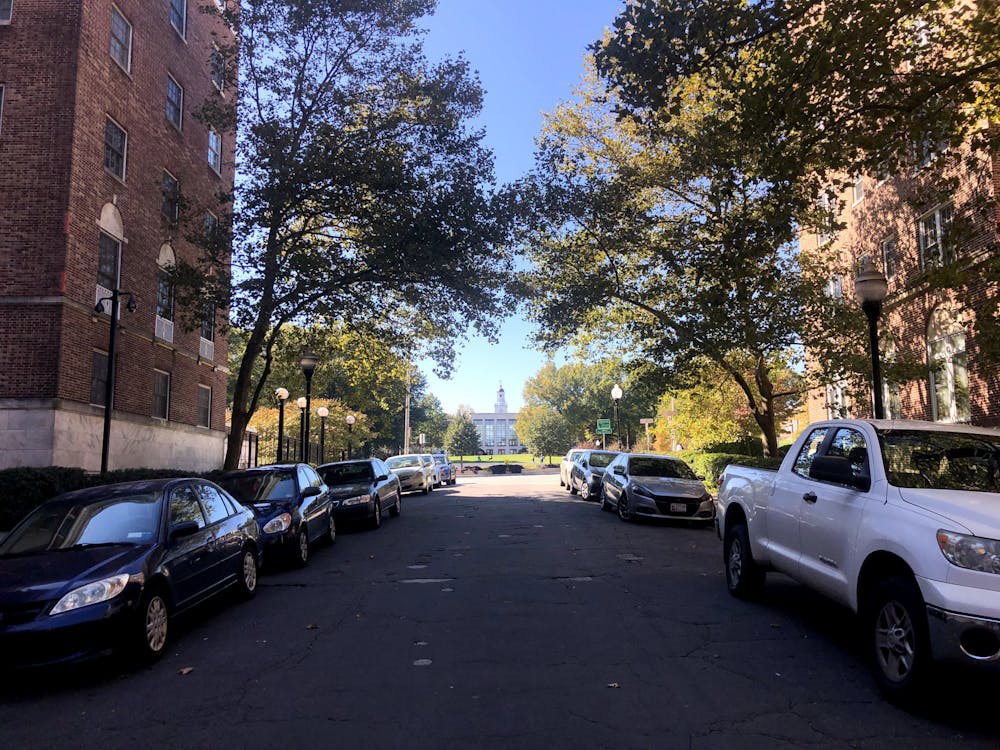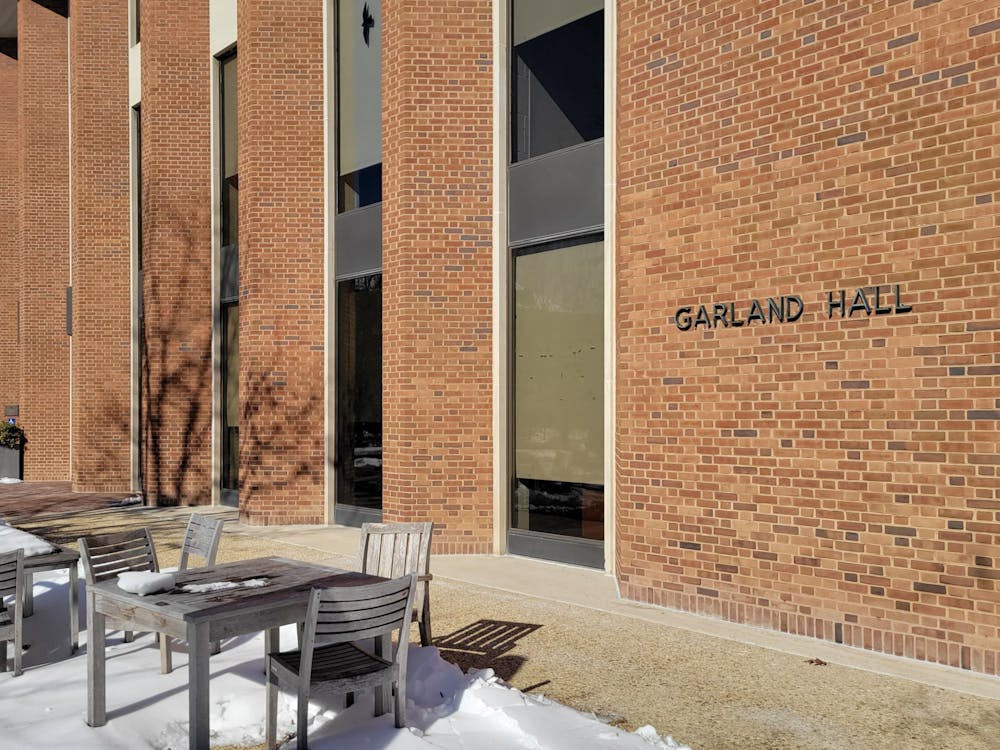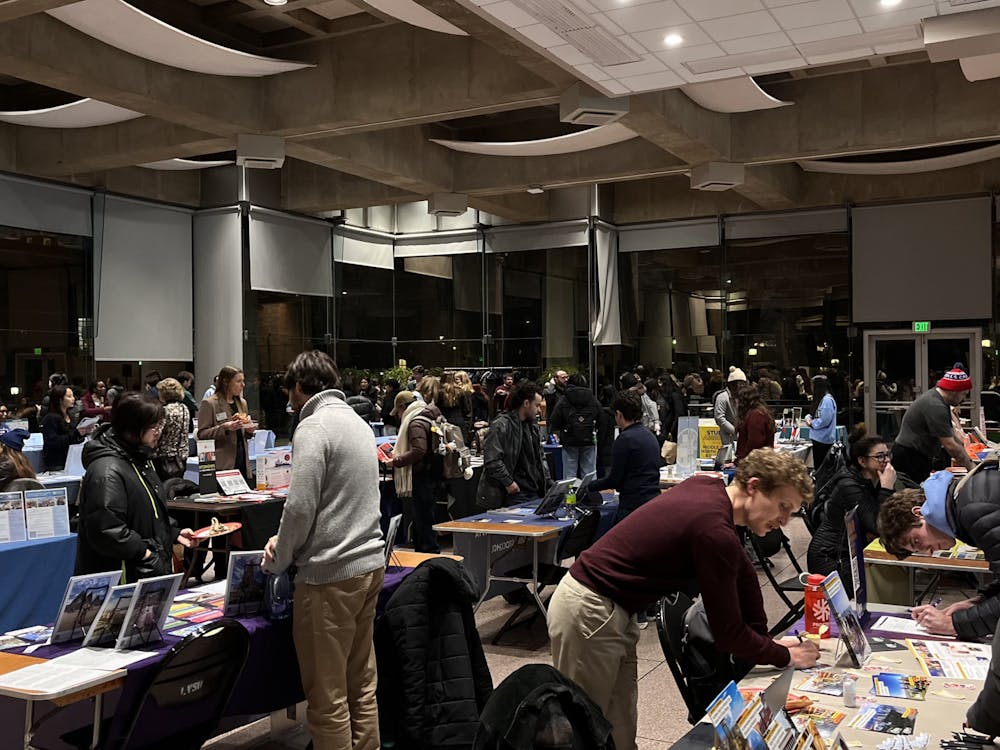In response to the rising number of COVID-19 cases across the state and an increase of cases within the Hopkins community, University leaders reaffirmed on Nov. 19 that, as of now, in-person, on-campus activities will resume in the spring. Online options for students and faculty will still be available for those unable to return to campus.
In an email to University affiliates, Provost Sunil Kumar and Interim Senior Vice President for Finance and Administration Mary Miller stressed that the University is continuing to take the pandemic seriously. The email was sent shortly after Maryland Governor Larry Hogan issued an executive order tightening COVID-19 restrictions.
“If the public health conditions require it, we will not hesitate to change course,” Kumar and Miller wrote. “We will continue to put the health and safety of the Hopkins community and our Baltimore neighbors first, but we are also determined to preserve the chance for the in-person activities we all miss.”
Kumar and Miller mentioned that despite the increase in cases, holding the fall semester virtually has successfully limited the virus’ spread among Hopkins affiliates.
“We have not detected transmission within university workplaces and labs,” they wrote. “We are proud of the way the Johns Hopkins community has come together to keep each other safe during this time, and that has helped us maintain a cautious optimism about the prospect of coming together again in January.”
Junior Adrian Tabassi, however, questioned whether in-person classes and activities will resume in the spring.
“Coming back on campus with regular testing would be great, but let’s see if it actually happens,” he said.
Junior Rachel Nie echoed Tabassi’s sentiments, noting that the University waited until August to announce that the fall semester would be online. Although she believes that the University has students’ best interests in mind, classes could easily switch back to online-only in January, she said, if Maryland’s number of COVID-19 cases do not improve.
“Whether you tell me now or whether you tell me in December, I will still be skeptical, just because of what happened this past semester,” Nie said.
In an email to The News-Letter, Assistant Vice President of External Relations Karen Lancaster stressed that the University is doing what it can to give students options and keep them informed.
“During this time of continued uncertainty and anxiety, we share in your desire for decisions and clarity,” she wrote. “We will continue to use every available piece of information available, coupled with our unique public health expertise, to take the most prudent path forward in the best interest of all members of our community.”
Kumar and Miller’s email also mentioned that the University will still be expanding its asymptomatic testing program.
As described in previous University announcements, starting in January, undergraduate students will be tested for COVID-19 twice per week and faculty, staff and graduate students will be tested once per week. During the fall semester, only residential students had access to asymptomatic COVID-19 tests.
Lancaster explained that this expanded testing will occur regardless of whether spring classes are held in-person.
“We know that many of our students are in Baltimore and will be in the spring regardless of the University’s posture,” she wrote. “We... hope that increased testing for those living off-campus will help protect our neighbors in Baltimore by limiting the virus’ spread in the broader community.”
Junior and Baltimore native Yvette Bailey-Emberson told The News-Letter that she supported expanded testing, encouraging the University to push it even further.
“It would be good if they extend testing to Baltimore residents because a lot of people may not be able to get tested without it,” she said. “Hopkins has a duty to give back to the community.”
In their email, Kumar and Miller also emphasized that in order to come back in the spring, students will need to continue following COVID-19 best practices, including wearing face masks, social distancing and avoiding large gatherings. This includes not traveling for Thanksgiving and the holidays.
“We do not know whether the current increase in cases will continue through the winter or whether the pandemic will again ebb, but we do know that if we don’t work hard now to prepare for the spring semester, we will foreclose the possibility of a return no matter what the metrics show then,” they wrote. “There is much about the course of this pandemic that we cannot control, and so we all must work hard at those things we can.”





